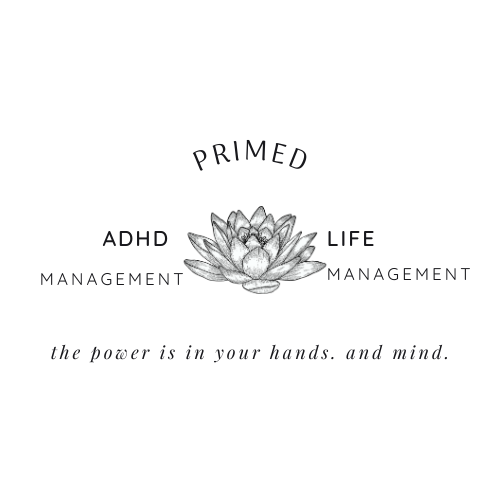ADHD Without Medication
Have you wondered about treating your ADHD naturally?
Yes, ADHD without medication.
I answered the question below on Quora in April 2018. Within weeks it had 99 upvotes and The question has been merged several times since and my answer continues to be the most popular response to the query. I originally dropped this post here on this website on May 23, 2018. As of November 2, 2020 there are 45.1k views, 581 upvotes, 37 comments, and 34 shares.
Here is that question and answer:
Q: How can I treat my ADHD without drugs?
A:
I believe that medicating is a personal choice. I’ve never been on meds. I was diagnosed in my early 20s after my formal education was complete. Up until then, here’s how I coped:
- I observed that I wasn’t like everyone else, and I attempted to be.
- When I did school assignments, it was easier to write about topics that I was interested in. If I had a choice of a topic or could take an angle/point of view that interested me, I performed better. When I did English assignments about books that I enjoyed, I got better grades.
- When studying for tests and exams, I highlighted, took notes, drew asterisks and got colourful with my notations. Having highlighters in all colours and those 4-colour pens made a difference in remembering information. I took notes in margins and annotated those. (I was in high school as the internet was coming of age and when few people had laptops. Laptops were made by Apple.)
After I got diagnosed, I was recommended the book The ADD Nutrition Solution by Marcia Zimmerman. 20 years later I’m still suggesting that book. It changed my life. Two months into following the plan I noticed myself maintaining eye contact during an interview and thought, “Huh, I can maintain eye contact now.”
Everybody’s needs are different, but there are some basics for ADHD management, some of which I had in memory and some of which I pulled off my bookshelf. Starting with nutrition and nutrients:
Nutrition and nutrients
- Consume lots of good fat. I cannot emphasize high-quality fats enough. Most of the brain is made of fat. It’s essential. Omega 3 essential fatty acids are important for everyone and were probably the biggest game-changer for me. This is why food lifestyles such as the ketogenic diet are good for brain health issues. Don’t think that it’s a silly weight loss fad. Keto has been helping people with seizures for decades. Its popularity has recently soared because it works, and then food faddists starting following it.
- Probiotics. A healthy gut is necessary for a healthy brain. The gut microbiome is sometimes referred to as the “second brain.” 95% of the body’s serotonin is produced by the gut nerve cells, and every class of neurotransmitters found in the brain is also found in the gut. Microbiota and nerve cells in the gut produce more than 40 neurotransmitters. Also, most of your immune system resides in your gut. I recently wrote a detailed blog post about it.
- Zinc. Zinc nourishes the entire brain. It also helps create a lot of the neurotransmitters that help relay messages between neurons. The production of melatonin depends on zinc. It also helps with immune function. Lots of us with brain health issues have problems with inflammation of the brain and inflammation is an immune response. In studies of children, those with the lowest blood levels of zinc had the highest levels of inattention, distractability, hyperactivity, impulsivity and other symptoms.
- Vitamin C: The brain uses Vitamin C to make neurotransmitters like dopamine and norepinephrine. A 2006 study found that children taking a Vitamin C supplement experienced improved ADHD symptoms. Furthermore, vitamin C is neuroprotective. Stimulant medications can cause oxidative damage in the brain, so vitamin C helps this (but take vitamin C an hour before or after ADHD meds).
- Vitamin B6. It helps form dopamine. In one study of children with ADHD that was done in 1979, vitamin B6 was as effective as Ritalin at controlling symptoms. (Source: A study published in Biological Psychiatry and referenced in James Greenblatt’s recent book Finally Focused). In other studies on adults cited in that book, vitamin B6 improved attention and decreased other symptoms. This said, if you’re already taking Ritalin do not stop just because someone on the internet (me) told you about vitamin B6. If you’re interested in stopping meds, talk to your doctor. I am not a doctor.
- Carnitine may help regulate dopamine and ADHD.
- Vitamin D is a neurotransmitter precursor that helps produce serotonin.
- Depending on symptoms and type of ADHD, different neurotransmitter precursors might help. Studies show that the ADHD brain blocks tryptophan and that low levels of GABA cause impulsivity. So, GABA might help people who are impulsive and hyperactive. L-tryptophan helps with sleep problems and anxiety.
- Watch the sugar and caffeine. Low sugar or no sugar. Be honest with yourself about whether or not you can tolerate caffeine. Caffeine helps some people with ADHD, providing better focus and clarity. Some people find that caffeine causes anxiety. Some go through periods of each. Some coffee drinkers can have it at night and still fall asleep easily. Caffeine is a drug. If it helps you, go for it.
The rest
- Physical activity. Years ago, a gym teacher in the U.S. initiated a program in which students elevated their heart rate before the start of school. As a result, it increased attention and learning. Other schools and school districts followed.
- Adequate sleep. Our brains need the recovery time.
- Routine. Try to keep your necessary items in homes (e.g., keys always in the same place) and try to stick to a schedule. If you have a list of activities that you do every morning, you’ll be more likely to remember if it’s routine.
- Environment: Determine the best environment for you and try to maintain it. You might need absolute quiet or a bit of background noise.
- Mental exercises: Puzzles, meditation, anything that teaches focus.
- Self-compassion. It’s easy to hate ourselves for certain qualities. Also, we tend to be more emotional, and our brains amplify situations. Not everyone with ADHD will do this. There are different types of ADHD that affect different parts of the brain. Every human on the planet benefits from self-compassion and love.
I have a whole system that I called PRIMED for bringing ADHD into balance. I created it based on my own needs, and I’ve helped others. (Contact me to learn more!)
Remember, ADHD is a brain health issue. A healthy brain is vital. Medications work on the symptoms, but you need to keep your brain healthy, just like your body. Keep yourself healthy rather than deal with it when you already feel like crap. Furthermore, a healthy body helps maintain a healthy brain.
Seek out the two books I mentioned above. Also, check out Daniel Amen’s website and his books about ADHD. These are the three resources that have had the most significant impact on me.
Bonus tip for my blogs: I find that my most focused, productive days begin with a morning run, followed by a big glass of water (at least a half litre), and then a coffee blended with coconut milk (good fat) and Four Sigmatic Lion’s Mane Elixer. The tagline for this product: “Like a hug for your brain”. Sometimes I double-fist coffee and a protein-packed smoothie. Want to try the Lion’s Mane Elixer? Click that link and you’ll be given 10% off. If you don’t see the 10% off at checkout, enter code loveyourbrain. (Affiliate link.)

